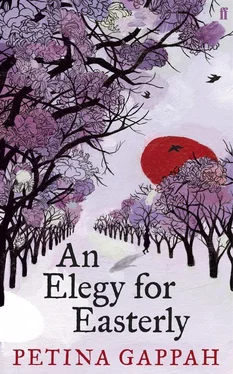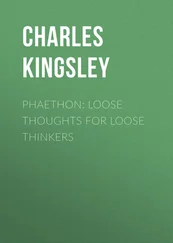Petina Gappah - An Elegy for Easterly
Здесь есть возможность читать онлайн «Petina Gappah - An Elegy for Easterly» весь текст электронной книги совершенно бесплатно (целиком полную версию без сокращений). В некоторых случаях можно слушать аудио, скачать через торрент в формате fb2 и присутствует краткое содержание. Год выпуска: 2009, Издательство: Faber & Faber, Жанр: Современная проза, на английском языке. Описание произведения, (предисловие) а так же отзывы посетителей доступны на портале библиотеки ЛибКат.
- Название:An Elegy for Easterly
- Автор:
- Издательство:Faber & Faber
- Жанр:
- Год:2009
- ISBN:нет данных
- Рейтинг книги:4 / 5. Голосов: 1
-
Избранное:Добавить в избранное
- Отзывы:
-
Ваша оценка:
- 80
- 1
- 2
- 3
- 4
- 5
An Elegy for Easterly: краткое содержание, описание и аннотация
Предлагаем к чтению аннотацию, описание, краткое содержание или предисловие (зависит от того, что написал сам автор книги «An Elegy for Easterly»). Если вы не нашли необходимую информацию о книге — напишите в комментариях, мы постараемся отыскать её.
An Elegy for Easterly — читать онлайн бесплатно полную книгу (весь текст) целиком
Ниже представлен текст книги, разбитый по страницам. Система сохранения места последней прочитанной страницы, позволяет с удобством читать онлайн бесплатно книгу «An Elegy for Easterly», без необходимости каждый раз заново искать на чём Вы остановились. Поставьте закладку, и сможете в любой момент перейти на страницу, на которой закончили чтение.
Интервал:
Закладка:
‘You are a coward,’ she said to him. ‘Isn’t he a coward? I keep saying he should ban this demeaning polygamy.’ His eyes laughed behind their glasses and he asked us how he could do this when the peasants were wedded to these arcane notions of life. The Minister of Justice talked about the difficulty of applying Marxist — Leninist principles in the context of African culture. ‘The changes wrought by the Age of Majority Act show that, in the short term, law can be an instrument of social change, but ultimately, it is not the consciousness of man that determines his material being, but his material being that determines his consciousness. Law is a superstructure which must also wither when the state withers away.’
And we drank some more wine and argued about what would remain when the state withered away.
His wife gathered us to her in a small band of foreign women that their men had married in their exiles, some from as far away as Jamaica, England, Sweden, some from Ghana, Swaziland, South Africa. We spoke English without feeling the need to apologise and drank wine and watched films at State House. We were well educated, all of us: Bachelors of Arts and Masters of Education, with three or four Doctors of Medicine. Yet we seemed to accept that the world of salaried work was closed to us as we raised children and hosted parties at which the talk was dialectical materialism and nation-building. When the World Bank’s focus moved to empowering civil society, the donor money poured in and we undertook projects, children’s foundations, disability programmes, women’s empowerment, adult literacy campaigns.
‘To help the nation-building process,’ we said, but, in reality, to keep ourselves busy and to close the chasm of boredom that threatened to engulf us in its emptiness.
Then the First Lady died but before that there was the Willowgate car scandal. ‘Top Ministers Involved in Illegal Sales of Government Cars’, the newspaper headlines screamed, ‘State House implicated in Willowgate’.
In the inner circle, we held our breaths and thought heads would roll and the peasants and workers would revolt, and demand an accounting. The only thing that happened was the death of a minister in a supremely self-indulgent act of suicide. His grave lies over there behind the tomb of the Unknown Soldier. In our band of foreign wives, we were shocked as our friend and patron the First Lady was sucked to the centre of the scandal. We became less shocked as she remained standing. The donor money poured in still, and we learned the benefits of creative accounting. We assured ourselves that the creative accounting did not matter because the peasants and the workers still got the benefit of the money.
She died, the First Lady, but even as his wife lay dying, the President kept an unofficial wife in a small house and our husbands also set up small houses and scattered their seed in every province. My husband and I were sent to a banana republic as the country’s representatives while the nation forgot about his third scandal concerning government tenders.
We returned to an amnesiac nation, but our visits to State House were not as frequent. The unofficial wife in the small house had become the Second First Lady at State House. She wore hats of flying-saucer dimensions while cows sacrificed their lives so that she could wear pair upon pair of Ferragamo shoes.
‘If only I could,’ she said to the nation’s orphans, ‘I would really, really adopt you all.’

A soldier steps out of the row of pallbearers with the flag folded in a neat triangular parcel. He salutes me before handing it to me. I let it sit in my lap with the stripes showing. I see the yellow and the green and the red and a bit of the black. The President looks into the distance.

‘How can one man rule forever?’ was the question that obsessed my husband before he died. ‘Twenty-eight years, and still he wants to hang on?’
He joined in a plot to ensure that the next president would be from his province. There were secret meetings. They had come to the farm, the heavyweights as the press calls them, referring to their assumed political influence, but the phrase could as well refer to their stomachs that require heavy lifting for all the copulation they seem to do with contestants and winners of beauty pageants. They plotted and schemed and the President got to know of their plots and schemes as he gets to know of everything. But the President was merciful; my husband’s grovelling must have been so irritating that the only way to put an end to it would have been to extend the magnanimous hand of presidential pardon. He did not enjoy that forgiveness long because then he succumbed to a long illness, to use one of many presidential terms for death from Aids. He died, leaving me relieved that it had been years since I was a wife to him in any but the social sense.

‘Forward, march.’ The words are a strangled cry that seems to come from deep within the intestines of a soldier whose face is contorted from the effort of shouting them. This is followed by the rattle of a drum. The voice comes again and six soldiers march in formation and stand over the open grave.
There is a drum roll.
‘Company, fire.’
The soldiers shoot into the air.
‘Company, fire.’
More gunshots.
‘Company, fire.’
And so on until twenty-one rounds have been shot into the air and the coffin has been sent off in the pomp and pageantry of a full military funeral. Tomorrow, the official newspaper will be full of a four-page photograph spread. They will say that my husband lay in state at Stoddard Hall before his coffin was loaded on to a gun carriage and travelled in a fifty-car cortège to the national shrine at Warren Hills, where a service from the official state priest was followed by an oration from the President, which was followed by a twenty-one-gun salute. There will be a full text of the President’s speech. And for at least a week, the funeral will make up the entirety of the nightly news.
These are the ceremonies that give life to the ruling party’s dream of perpetual rule, the pompous nothingness of the President’s birthday celebrations, the state-sanctioned beauty pageants from which they choose new mistresses, the football matches with predetermined outcomes. The unity galas and musical ‘bashes’, the days of national prayer, and, above all these, the state funerals.
I wonder what the masses would say if they were to be told that they have gathered here to bury a bit of wood covering a sack filled with earth while the man we mourn lies in an unmarked grave.

The newsreader who was my husband’s mistress announced that my husband was to be made a national hero. The Politburo had declared him a hero to be buried at the national shrine. They did not tell me, his widow, of this decision and I had to hear it from his whore on the evening news. ‘The shrine is where they lay the gallant sons who fought in the liberation struggle,’ she added, helpfully.
What she does not say is that my husband is fortunate to have been awarded the status at all. Only those who had not disagreed with the President at the time of their deaths become heroes. A committee weighs the gallantry. It is sometimes necessary to upgrade those that were not gallant enough but sang well enough and danced high enough in the praise of the President to earn them a place there. My husband had been measured and the scales declared him worthy. He had never held a gun in his life. He knew nothing of the forests of Mozambique where the guerrillas trained. His main contribution to nation-building was to unite the nation in gossip over his five scandals. The scandals and his recent disloyalty have been discarded and all that matters is that he consolidated the gains of the liberation struggle by devotedly introducing the President by his full totem name.
Читать дальшеИнтервал:
Закладка:
Похожие книги на «An Elegy for Easterly»
Представляем Вашему вниманию похожие книги на «An Elegy for Easterly» списком для выбора. Мы отобрали схожую по названию и смыслу литературу в надежде предоставить читателям больше вариантов отыскать новые, интересные, ещё непрочитанные произведения.
Обсуждение, отзывы о книге «An Elegy for Easterly» и просто собственные мнения читателей. Оставьте ваши комментарии, напишите, что Вы думаете о произведении, его смысле или главных героях. Укажите что конкретно понравилось, а что нет, и почему Вы так считаете.












